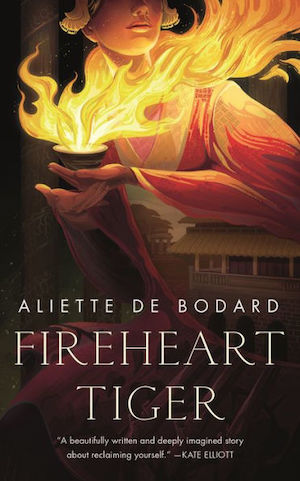We’re heading into one of the few singular plotline Discworld books… time to start Pyramids.
Summary
In the Assassin’s Guildhouse, Teppic dresses himself in the garb and equipment of an assassin and falls over. He divests himself of some of the heavier weapons and slips out his window, preparing for his assassin’s exam. Said exam is administered by Mericet, one of the toughest instructors in the guild, who tells him to meet him in another part of the city to return a Guild bond. Teppic begins his route by edificing, an activity he has a great deal of skill in, but one of the usual plank bridges has been removed and he plummets, recalling his life before: He is the son of King Teppicymon XXVII of the kingdom of Djelibeybi, who sent him to the Guild because it would give him excellent life skills and a good profession that paid well. (Apparently, he’d promised Pteppic’s late mother that he would send him somewhere else for education, as she wasn’t from their kingdom and was critical of the way people from Djelibeybi spent their time remembering things rather than learning them.) He sent the boy off at twelve, and they’d had a rather awkward conversation before he left, seeing as they never spoke much.
Buy the Book


Fireheart Tiger
Teppic also recalls his education at the hand of a wild variety of tutors, and the strange relationship of his parents, who never paid much attention to him. He recalls arriving at the Guild and seeing the other students arrive, and meeting the Viper House master, Grunworth Nivor. He also recalls meeting another boy named Chidder, and how no one was impressed by his lineage as a son of pharaohs. Chidder tells Teppic about where he’s from and Teppic tells Chidder about how his kingdom doesn’t have much money because it all goes into the pyramids. Teppic has managed to stop his fall and cling to the wall of the building by his knives. He makes it into the next building, discovering that Mericet removed the plank bridge, of course. Teppic remembers his first night in the dorms, where Arthur tried to worship as a Strict Authorized Ormit, and Teppic had explained to him that he was technically the son of a god. In the meantime, Chidder beats up a kid named Cheesewright for giving Arthur a hard time about his worship. Later on, many fights broke out amongst the assassin trainees about their faiths, until the masters had to intervene and tell them all to knock it off.
Teppic runs into his next trap in his run to the gong tower, and realizes that Mericet is trying to get him to kill himself in this task, so he gets more careful. He makes it to the end, where there is a subject lying in wait along with Mericet, the final test to prove he can kill—which he knows he cannot. Teppic recalls classes with Lady T’malia, the only woman of high standing in the guild, and her lessons on its history. He realizes that he can’t kill his target and decides to fail, shooting the bolt of his crossbow so that it ricochets impressively. Surprisingly, this is enough to pass the test, and Mericet leaves him with his papers. He heads back to the Guild house and finds Chidder, who has also passed—the tests use dummies, which Teppic is still surprised over. Arthur makes it back as well (he turned out to be the son of a famous assassin, so there wasn’t much doubt), but Cheesewright doesn’t. The three graduates go out for some squishi (very expensive raw fish), and wander back so drunk that they get turned around. They are set upon by thieves who are not members of the appropriate guild.
At the same time, Teppic’s father has died, and Death comes to collect him. He explains the whole mummification process to Death, who leaves before he can ask any questions. The king wants to put a pause on the whole pyramid building business but, of course, no one can hear him. His divine aspect is in a seagull that lands beside Teppic right in time to freak out the thieves menacing him and his friends. Dios, the high priest of Djelibeybi (who has been performing most of the king’s duties all this time), is seeing to the funeral arrangements with the other priests, and neglects to inform Teppic because he insists the young man will know his father is dead. Teppic is, in fact, being carried through the streets by his friends. Plantlife springs up in his wake inexplicably. They bring him to a doctor who declares him dead, but Teppic bolts upright and insists that he must return home, using one of Chidder’s father’s smuggling boats. The king watches his own body being mummified, and is decidedly less keen on the whole experience from this angle. Teppic takes the boat and arrives back home, certain that he can be a better king than an assassin, and knowing that he won’t be leaving.
Commentary
Okay, so I’ve definitely never read this one. It’s weird because I was very excited to read anything to do with ancient Egypt as a kid, even obliquely, so I imagine I would have jumped at the chance if I’d seen it anywhere. But that might just have to do with not coming across it, as this isn’t one of the more popular Discworld books. Whether that’s down to it being a standalone, or it maybe not living up to more beloved Discworld stories, is something that I supposed I’ll find out as we go.
Of course, plenty of Pratchett fans refer to the author as Pterry because of this book (which I learned in the Good Omens fandom, where they also referred to coauthor Neil Gaiman as Gneil). The naming convention here is an odd one, however, because the ruler it naturally brings up is Ptolemy. Who was a pharaoh, certainly, but not one of Egyptian descent—he was a Macedonian Greek, one of Alexander the Great’s bodyguards. His descendants ruled Egypt for a few centuries until the end of their reign with Cleopatra, when Egypt fell under Roman rule. Thing is, the kingdom Djelibeybi is referred to as the Old Kingdom. And Egypt itself had an “Old Kingdom” period, but that was way before Ptolemic Egypt (we’re talking two millennia of separation), so I’m trying to decide if this naming conceit was done purely for the lols, as it were, and how I feel about that. Eh.
It’s a great example of issues in creating satire around a culture you aren’t a part of. There’s a messiness to the construction of this corner of the Disc that you don’t often find in Pratchett’s work. I love a “mummy” pun as much as the next person, and making jokes about what embalmers probably did for fun in the midst of their work is always entertaining on the surface, but you’re not actually talking about the guy who works down at the local mortuary. You’re talking about a religious rite that was central to the Egyptian belief system. It would be more interesting by far to read a satire that really delved into Egyptian religion and culture, rather than an inherently British and Hellenist sensibility laid over Egyptian trappings.
This is highlighted even more by the opening of the book, which is a hilarious ode to British driving exams done to an assassin’s tune. The point is, Pratchett has to pull Teppic out of his surroundings, out of his culture, in order to make sense of him. He has to drop him into Ankh-Morpork—his London/Rome amalgam—to give him a starting point. Which only serves to reinforce his perspective. The same is true of Death’s meetcute with the pharaoh. It is funnier to have Death acknowledge that he can’t be all things to all people, so he’s elected to be a big skeleton with a scythe to everyone regardless of their beliefs? Sure. Would it have been more arresting to see Death make an effort to adhere to what the pharaoh thought he was going to see when he passed away? Definitely. And it would have had the added benefit of de-centering Western perspective on an African culture. (And this is without getting into the fact that a skeleton with a scythe isn’t a “neutral” image for Death; it’s entirely Western.)
The fact that there are several parallels between Djelibeybi and the fictional Gormenghast kingdom created by Mervyn Peake forces us to sit with that mismatch. Fans love to point out the similarities here—dad who died because he thought he was a bird, mom obsessed with cats, the adherence to ancient ritual over looking forward—but it really only serves to point a finger at how insular the fantasy genre has been for such a long time. When this book was written in the late 80s, there was no super popular fantasy kingdom based on Egypt (or written by an Egyptian author, for that matter) for an English-speaking author like Pratchett to find and draw from.
That said, the assassin’s test is truly fun to read, and was apparently unusual for Pterry in its writing; he was not one of those authors who admitted to being carried away by his characters or surprised by their actions, but he did state this test as the one place where the narrative got away from him. It shows in how tense and cinematic the sequence is, and the flashbacks to Teppic’s time in the Guild are also enjoyable as we’ve heard about the Assassin’s Guild in other Discworld books, but not gotten to see much of them yet.
Asides and little thoughts:
- The title of part one—The Book of Going Forth—is the second time Pratchett has riffed on The Book of Going Forth By Day, which is what the ancient Egyptians called The Book of the Dead. The first time is in The Light Fantastic.
- Pratchett says that Ankh-Morpork is typically “a city of mists and drips, of slithers and chills”. Obviously there are a lot of aspects to the city that are reminiscent of London, but none are quite so evocative as that.
- I’m fascinated by certain series that Pratchett draws on and parodies in his stories, and the use of Tom Brown’s Schooldays here is such a wonderfully random flex. Practically no one reads those books anymore, so you’re getting a very particular shoutout to something that most folk won’t even notice on the surface.
- Okay, I have to give him Djelibeybi. As a Doctor Who fan, I’m obligated to be pleased by any reference to jelly babies.
Pratchettisms:
What our ancestors would really be thinking, if they were alive today, is: “Why is it so dark in here?”
He placed it on his head at a jaunty angle, took a last satisfied look at himself in the mirror, turned on his heel and, very slowly, fell over.
Teppic hadn’t been educated. Education had just settled on him, like dandruff.
(Priests were metal-reinforced overshoes. They saved your soles. This is an Assassin joke.)
And he’d fail with flair.
Broadly, therefore, the three even now lurching across the deserted planks of the Brass Bridge were dead drunk assassins and the men behind them were bent on inserting the significant comma.
When you die, the first thing you lose is your life. The next thing is your illusions.
Up through Part II, next week. See you then!










